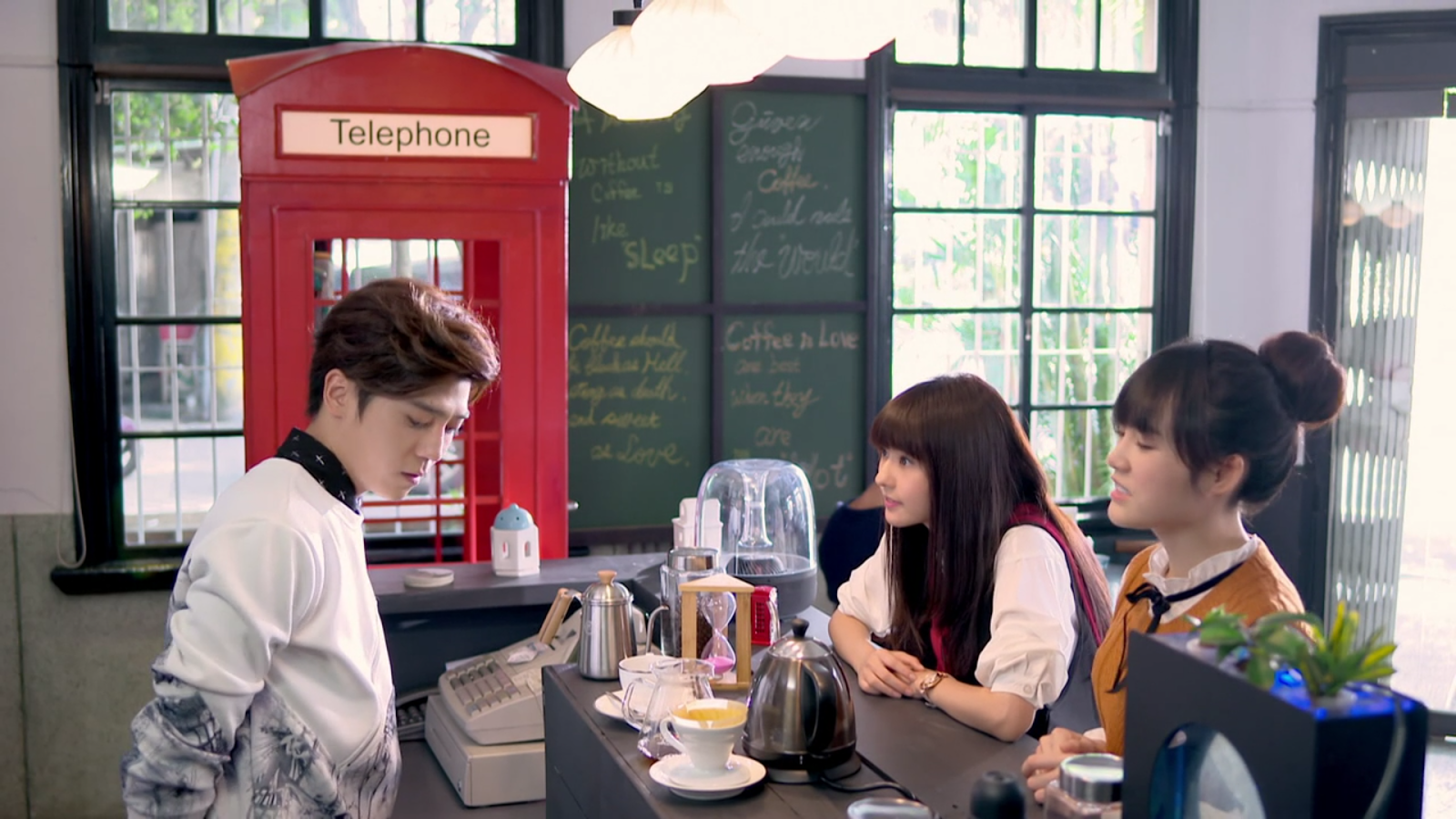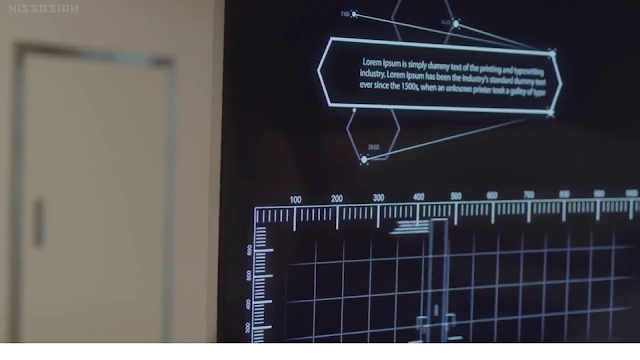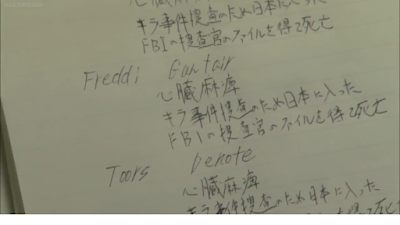White People in Asian Shows
She Was Pretty (Korean) has fairly good examples of shudder-inducing Token White People scenes. I'm pretty sure that the White Guy from the New York office of The Most magazine was played by a robot, considering his utterly wooden and cringy performance. Also, there's one scene at Ha Ri's hotel where a White Guy with a very posh British accent is supposed to be playing an American.

William, the White Guy in Tamra, The Island is supposed to be British, but he has a very strong non-British accent (I'm guessing French, based on the actor's name) and doesn't appear to be able to speak English well at all.

But this problem goes both ways, I'm sure--I believe that most, if not all, of the non-Korean cast members in Moorim School had accents when they spoke Korean.

Asian-Americans and Americanized Asians
Then there's the characters that are supposed to be Asian-American or supposed to have lived in America for quite a while, but act very Asian (familiar with the culture, food, public transit systems and whatnot) and have extremely strong Korean accents when they speak
English.

She Was Pretty illustrates this quite well: Sung Joon, the Main Guy character, is supposed to have lived in America for quite a while, around 10 years, I believe. He moved there as a kid, and eventually got a high-profile job at a high-profile magazine in New York, The Most. While it's reasonable to expect that he would have some type of Korean accent, you would expect him to be able to clearly communicate in English, right? Well, his Korean accent is so strong, he's barely understandable when he speaks English. Also, he seems to mesh right into the culture (aside from his a-hole attitude, but that's to be expected for a main male character in a K-drama), with no culture shock whatsoever from having lived in America for ~10 years.
The 2007 and 2011 versions of Hana Kimi (Japanese) feature an Americanized Asian (Ashiya Mizuki) who speaks Japanese fluently and adapts perfectly to living in Japan. Same with To The Beautiful You (Korean). Then again, I'm not really expecting realism from either of those shows.
Ode To Joy (Chinese) and Big (Korean) did make some sort of effort to make their American(ized) characters go through cultural difficulties. An Di from Ode to Joy (a Chinese girl who was adopted--around 10 I believe--and taken to the US) has some difficulty understanding certain aspects of Chinese culture and is unfamiliar with Chinese food (real Chinese food, not Americanized Chinese food). Though I do wonder why she speaks Chinese so well. I guess it's because she's a genius.
Kyung Joon from Big (played in part by Shin from Cross Gene) has lived in America for some time. While his English isn't quite as difficult to understand as Sung Joon's, he still has a strong accent. His character (from what little I saw of the show) isn't intimately familiar with Korean culture (though some of his odd actions can be explained by the fact that he's a massive weirdo). Shin's normal Korean sounds odd enough, so I'm not sure if his character is supposed to have an American accent.
I'm sure that American and other English-language TV shows commit similar crimes against Asian languages. However, I can't really point them out/complain about them since I'm not intimately familiar with Asian languages like I am with English. Also, I know that learning another language is very difficult and pronouncing English is probably very hard. That being said, having an English consultant (at least for the high-profile shows and movies) might not be a bad idea.
One Asian show that really gets the English right is My Name Is Kim Sam Soon (Korean). A Korean-American is one of the main characters (and actually speaks English like a native American!), and another one of the main Korean characters speaks very good, understandable English.
Written Engrish and Crazy Books and Backgrounds
The strange and funny English in Asian shows isn't limited to spoken language; it also appears in writing and background bookshelves. I generally don't pay much attention to background bookshelves in Asian or English-language TV shows, and I'm sure that both have crazy, nonsensical background books and text. The two most egregious examples of bad/funny English text and background books I recall seeing so far in Asian shows appear in the Korean webdrama Bong Soon: A Cyborg in Love (Korean) and the Taiwanese drama Bromance.

Bromance
In the office of Du Zi Feng, the main male character/love interest of Bromance, there are a number of...odd book choices. Most notable, however, are the copies of the Divergent series. Now, it's not *entirely* out of the realm of possibility that Zi Feng could read and like a generic English dystopian YA series. However, it's a little odd that he would have the books in his office, and even odder that he would have several copies of each book. He also seems to have some of the same books that Pi Ya Nuo (the main character)'s parents have in their house. He also has several copies of the same book.


However, there's some good background English in a coffee shop.

So, why the Divergent books? Was one of the cast or crew members a fan? Were they,
along with the other English books, just random filler?
Bong Soon
Bong Soon: A Cyborg In Love stars Kyuhyun of Super Junior and the girl who plays Jin Yi in Let's Eat. It's a silly, unrealistic little webdrama, so the English mistakes are more funny than anything. ("BS Project", "BS Electronics"...hehe.)


An intense debugging scene in the latter part of the show (featuring Token White Guys) shows just how much they didn't try with the English. They used the Lorem Ipsum dummy text instead of actually stringing a few English sentences together.

So there wasn't one English-speaking person that could have noticed and said, "Hey, this looks a little strange..."?? Heck, a recipe for apple pie would have made more sense...maybe one of the White Guys was hungry.
Other Shows
Both the 2007 and 2011 versions of Hana Kimi (Japanese) have some Engrish, though usually just a few letters are out of place.
Take a look at this scoreboard from To the Beautiful You.

The names of the FBI agents in the 2006 Death Note movie (Japanese) are also gibberish.



However, crazy background text isn't limited to Asian shows. One notable example of this on an English-language TV show appears in a season 5 episode of Leverage, The Corkscrew Job. The text on the TV is supposed to be about the famous Thomas Jefferson bottle.

However, if you actually pause the episode and read the text, it quickly delves into a rabbit hole of weirdness. In fact, it reads exactly like a fanfiction on WTFFanfiction, or a fanfiction from one of those crazy fanfiction generators. Massive kudos to whoever wrote and allowed that in the show, though; that's awesome.
So why is there such bad English/Engrish/gibberish in the backgrounds of Asian shows? Do they not care because the main audience doesn't speak English? Do they have no one to proofread the English? Is there some copyright issue they have to get around?
If they need an English-speaking person to write/proofread background text, I WILL DO IT. Totally. :)

Caesars Casino | Jacksonville, MS | JMTH
ReplyDeletePlay at Caesars Casino! Click to find 전라북도 출장안마 out more 광명 출장샵 about the casino's games, promotions, The Caesars Casino 제천 출장마사지 is located just 나주 출장안마 outside Mississippi in 포천 출장안마 the heart of